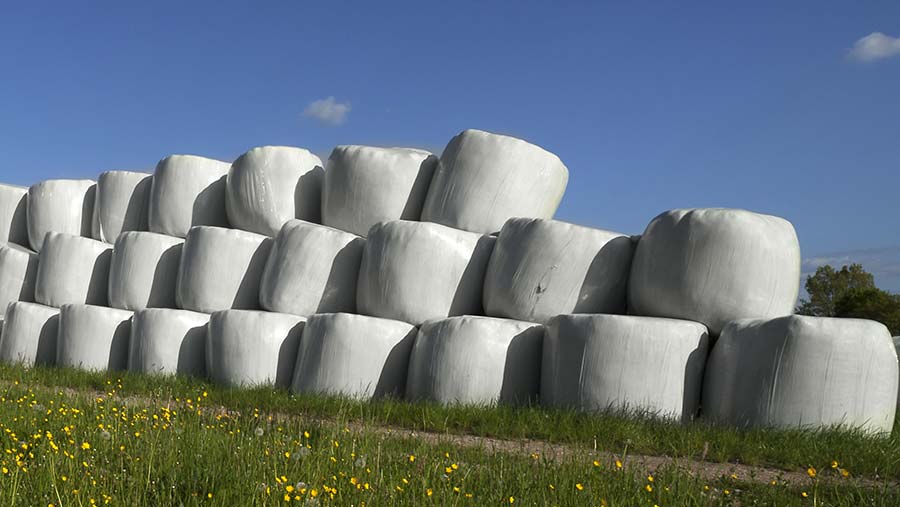Experts highlight the risks of stacking bales on end
 © Helmut Meyer zur Capellen / imageBROKER/REX/Shutterstock
© Helmut Meyer zur Capellen / imageBROKER/REX/Shutterstock As silaging season approaches, experts are raising concerns about the growing popularity of storing round bales on end.
It has been suggested that silage bales are better protected from damage if stored on end because there are more layers of wrap on the bale ends, but according to Rhun Fychan, research scientist from Aberystwyth University, there is no scientific basis to these claims.
And he believes stacking bales on end, especially when young grass is ensiled, can lead to more risk of stacks collapsing and causing danger to those in the vicinity.
“The number of bales stored on end in the UK is increasing, but there is no proof that stacking bales in this manner is beneficial and storing bales on end can lead to unstable stacks that could easily collapse without warning,” said Mr Fychan.
See also: All you need to know on certification and staff training
“Some of the concept of storage on end has come from Ireland. In Ireland, a high proportion of bales are stored on end, but in the majority of cases these are stored in a single layer in small numbers.
“The concept seems to have been adapted in the UK to stack three, four and even five bales high. This may be acceptable when storing hay and straw, but silage or haylage stacked on end can be very unstable and could collapse,” he added.
The UK Health and Safety Executive (HSE) do not support the concept of storing bales on end in outdoor stacks.
HSE guidelines on stacking round bales
Pyramid stacking
The safest method of stacking round bales is on their sides in a pyramid, but make sure:
- the bottom rows of outside bales are chocked or fitted with stakes or supports;
- layers are overlapped by half a bale front to end.
End stacking
- Stacking round bales on their ends can lead to unstable stacks because inconsistent bale density allows bales to settle and shift.
- Only consider stacking round bales on their ends if they are to be stored within a building where the building has sides or other suitable measures are provided to reduce the risk of bales falling out.
